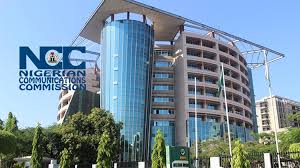News Investigators/ Stakeholders in the telecoms sector have urged stronger legislative provisions to protect the industry from multiple regulatory pressures and safeguard the independence of the Nigerian Communications Commission.
The call was made during a panel session on Tuesday in Lagos and organised by the NCC to review the Nigerian Communications Act 2003.
Gbenga Adebayo, Chairman of ALTON, raised concerns about multiple regulations and interference from sub-national authorities, citing a recent incident involving local agencies in Kogi.
“We need stronger legislation to shield us from interference by local authorities and conflicting state laws,” Adebayo stated.
He added that the actions of such state actors hinder operators’ ability to deliver uninterrupted communication services across the country.
Mr Adebayo also called for the NCC’s autonomy to be preserved, particularly in managing pricing decisions without external interference.
“The success of our industry is due largely to the independence of our regulator,” he added.
Chizua Whyte, Head of Legal and Regulatory Services at NCC, said the current Act had driven industry growth but needed updating for today’s realities.
“We must align the Act with new technologies like OTT services and address interconnection issues,” Whyte said.
She also advocated for a dedicated chapter on communication offences and the protection of national infrastructure in the revised Act.
Ms Whyte stressed the need to introduce smart licensing models and general obligations for industry players within the new legal framework.
Damian Udeh, Associate Director at IHS, described service quality as a major concern, while commending NCC for prioritising it in recent years.
He said operators were fulfilling obligations, but external factors like power shortages and infrastructure gaps hindered overall service delivery.
“We’ve seen quality improvements, but we need greater empathy from the regulator, given the challenges we face,” Udeh noted.
Tobe Okigbo, Chief Corporate Services Officer at MTN, suggested relaxing licensing rules to boost innovation among startups and young entrepreneurs.
“We need a general authorisation or sandbox regime to let startups access data and build new solutions,” Okigbo proposed.
He also highlighted the importance of regulatory independence, referencing the autonomy of the US Federal Communications Commission.
“We must empower NCC to act independently, free from political interference,” Okigbo said.
He added that the NCC’s expertise must guide decisions, not political agendas, to ensure sound governance in the telecoms space.
Mr Okigbo further suggested that the National Assembly consider merging agencies like NCC and NBC to cut redundancy and improve efficiency.
NAN


